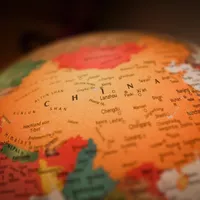020. 數字 “九 ”的 魔力 - The magic of the number "nine"
020. Die Magie der Zahl „Neun“
020. The magic of the number "nine" - The magic of the number "nine"
020. 数字「9」の魔法 - 数字「9」の魔法
020. 숫자 "9"의 마법 - 숫자 "9"의 마법
今天 ,2009 年 9 月 9 日 , 對於 中國 人 來說 , 是 百年一遇 的 吉祥 的 日子 , 至少 , 是 最 適合 結婚 的 日子 。
Today, September 9, 2009, is a once-in-a-century auspicious day for the Chinese people. At least, it is the most suitable day for marriage.
這個 日期 中有 三個 數字 “ 九 ”( 久 ), 象徵 著 愛情 天長地久 , 因為 它 的 諧音 就 像 “ 愛 你 久久 久 ”。
There are three numbers "nine" (jiu) in this date, which symbolizes the everlasting love, because its homophone is like "love you for a long time".
中國 人 對 數字 “ 九 ” 的 喜愛 由來已久 。
Chinese people have a long-standing love for the number "nine".
“ 九 ” 是 最大 的 基數 , 而且 又 和 “ 長久 ” 的 “ 久 ” 諧音 , 所以 , 在 中國 的 傳統 裡面 , 只要 遇到 “ 九 ”, 就是 吉祥 、 平安 和 順利 。
"Nine" is the largest cardinal number, and it is homophonic with "jiu" which means "long time". Therefore, in Chinese tradition, as long as you encounter "nine", it means good luck, peace and success.
農曆 九月 初 九 是 重陽節 , 兩個 “ 九 ” 重疊 , 意義 非凡 , 所以 這 一天 是 中國 人 紀念 祖宗 和 尊敬 老人 的 節日 。
The ninth day of the ninth lunar month is the Double Ninth Festival. The two "nine" overlap, which is of great significance. Therefore, this day is a festival for Chinese people to commemorate their ancestors and respect their elders.
既然 數字 “ 九 ” 的 意義 那麼 大 , 不管 是 農曆 還是 陽曆 , 一定 會 給 人們 帶來 好運 。
Since the number "nine" has such great meaning, whether it is the lunar calendar or the solar calendar, it will definitely bring good luck to people.
人們 喜愛 這個 吉祥 的 日子 , 就 選擇 在 這個 日子 舉辦 慶典 、 宴會 , 或者 像 開頭 說 的 , 登記 結婚 —— 決定 終身大事 。
People love this auspicious day, so they choose to hold celebrations, banquets, or, as I said at the beginning, register their marriages—deciding lifelong events.
“ 九 ” 不僅僅 是 一個 數字 , 它 也 代表 了 一種 哲學思想 。
"Nine" is not just a number, it also represents a philosophical thought.
陰陽五行 裡面 ,“ 九 ” 是 最大 的 陽數 , 象徵 著 天 。
Among the five elements of yin and yang, "nine" is the largest yang number, symbolizing heaven.
而 中國 的 傳說 裡面 , 天有 九層 ,“ 九層 天 ” 就是 最高 的 地方 。
According to Chinese legend, the sky has nine levels, and the "Nine Levels of Heaven" is the highest place.
你 也許 聽說 過 “ 九州 ” 這個 詞 , 它 就是 古代 中國 的 名字 。
You may have heard of the word "Kyushu", which is the ancient Chinese name.
以下 是 一些 含有 “ 九 ” 的 成語 , 通過 這些 成語 , 你 可以 體會 “ 九 ” 這個 數字 在 漢語 裡面 的 意義 。
The following are some idioms that contain "nine". Through these idioms, you can understand the meaning of the number "nine" in Chinese.
九霄雲外 , 九九歸一 , 九五之尊 , 九泉之下 , 九死一生 , 九牛一毛 , 一言九鼎 , 十拿九穩 ……
Beyond the clouds, nine-nine-one, nine-five-sage, under the nine springs, a life of nine deaths, nine oxen and a dime, one word, one word, ten stable...
當然 , 現代 中國 人 最 崇拜 的 數字 毫無疑問 是 “ 八 ”。
Of course, the number that modern Chinese people most admire is undoubtedly "eight".
不過 在 古代 , 人們 對 數字 “ 九 ” 的 崇拜 絲毫 不亞於 現代人 對 數字 “ 八 ” 的 崇拜 。
However, in ancient times, people worshiped the number "nine" as much as modern people worship the number "eight".

